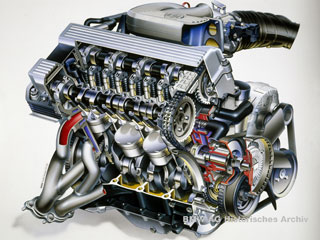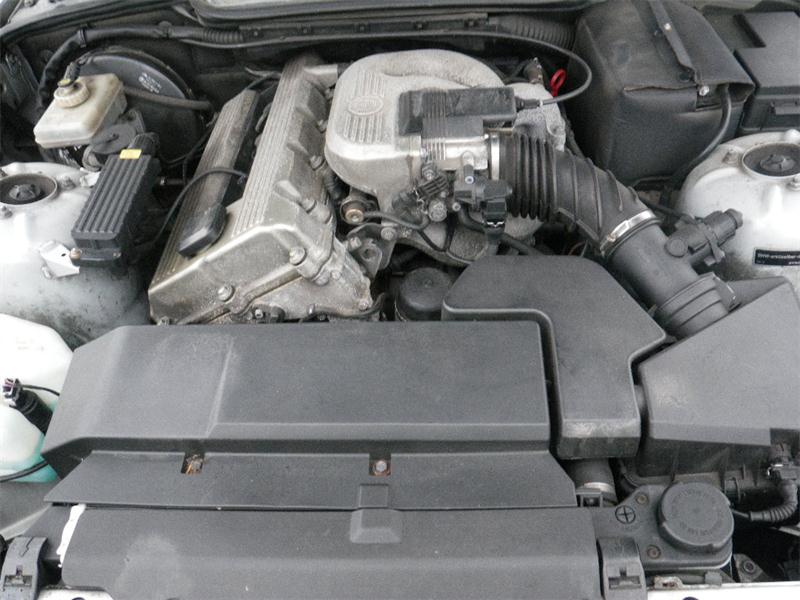BMW 318ti: A Traditional Compact with Ageless Appeal
BMW 318ti: A Traditional Compact with Ageless Appeal
Blog Article
Crucial Factors To Consider for Choosing the most effective Engine for Your Requirements
In the realm of selecting the suitable engine to meet your demands, a number of important aspects demand careful consideration to guarantee optimal performance and efficiency. From the nuanced equilibrium between power and performance to the often-overlooked facets of maintenance and solution requirements, each facet plays a critical duty in determining the most suitable engine for your particular needs.
Power and Performance
When reviewing engines for ideal efficiency, it is critical to prioritize both power outcome and effectiveness. Power outcome determines the capacity of an engine to generate energy, which directly impacts its performance. A high power outcome is crucial for requiring jobs such as high-speed needs or durable applications. It guarantees that the engine can deal with the work efficiently and efficiently. Power alone is not sufficient; efficiency plays a substantial duty in establishing the general efficiency of an engine. Efficiency refers to how well the engine converts fuel right into usable energy. An extra efficient engine will provide better mileage, reduced emissions, and reduced operating expense. Striking the best balance in between power outcome and effectiveness is key to choosing an engine that meets your particular requirements. When making this decision, it is essential to consider factors such as the planned use of the engine, environmental effect, and long-term price implications. By very carefully evaluating both power and efficiency, you can select an engine that supplies optimal efficiency and meets your requirements properly.
Fuel Efficiency and Economic Situation
Fuel efficiency refers to the engine's capacity to transform gas into energy with very little waste, directly influencing operating prices and ecological sustainability. Engines with greater gas performance not only lower fuel expenditures but additionally decrease carbon discharges, contributing to a greener operation.

Compatibility and Application
Considering the gas efficiency and economic situation of an engine, the next crucial element to address is its compatibility and application within specific functional contexts. Compatibility refers to exactly how well the engine integrates with the general system or equipment it powers. It includes factors such as physical measurements, mounting choices, electrical interfaces, and control systems. Making certain compatibility is vital to prevent problems such as getting too hot, vibrations, or power discrepancies (bmw 318ti).
Various engines are made for details objectives, whether it be commercial equipment, marine vessels, automobiles, or power generators. Comprehending the designated application allows for the selection of an engine that can deliver the required power result, torque, and functional features.
Maintenance and Solution Needs
Maintenance and service needs play an essential function in making certain the durability and ideal efficiency of an engine. my link Regular maintenance is important to prevent break downs, extend the life-span of the engine, and maintain have a peek here its effectiveness. When selecting an engine, it is vital to consider the producer's suggested upkeep schedule and the availability of service facilities or qualified professionals.
Variables such as the frequency of oil changes, filter substitutes, and total inspections can considerably impact the engine's efficiency. Some engines might call for even more constant maintenance based upon their layout and use, while others might have longer periods in between upkeep checks. It is crucial to comply here are the findings with these solution demands to prevent expensive repair services and unforeseen downtime.

Price and Budget Plan Considerations
When selecting an engine for a certain application,Budget plan restrictions typically play a significant duty in the decision-making process. When taking into consideration the price and budget plan effects of selecting an engine, it is essential to analyze not only the first purchase rate however also the long-term expenditures connected with maintenance, fuel usage, and possible upgrades or repair services. It is important to strike an equilibrium between the ahead of time expense of the engine and its general lifecycle expenses to guarantee that the selected engine remains economically lasting throughout its functional life expectancy.
Variables such as gas effectiveness, toughness, and dependability can straight impact the complete expense of ownership of an engine. While an extra costly engine may have greater in advance costs, it can potentially result in reduced maintenance and fuel expenditures over time, therefore offering far better value in the lengthy run.
Final Thought

Fuel effectiveness refers to the engine's ability to convert gas right into energy with very little waste, straight impacting operating expenses and ecological sustainability.Variables influencing fuel performance consist of engine layout, combustion effectiveness, and total efficiency optimization. Additionally, choosing the proper gas type and grade as suggested by the engine maker can further boost effectiveness and lengthen engine lifespan.
Engines with good service functions and conveniently offered components can reduce maintenance expenses and lessen the time the engine is out of procedure - bmw 318ti. It is critical to strike an equilibrium between the upfront cost of the engine and its overall lifecycle costs to guarantee that the selected engine stays economically lasting throughout its functional life-span
Report this page